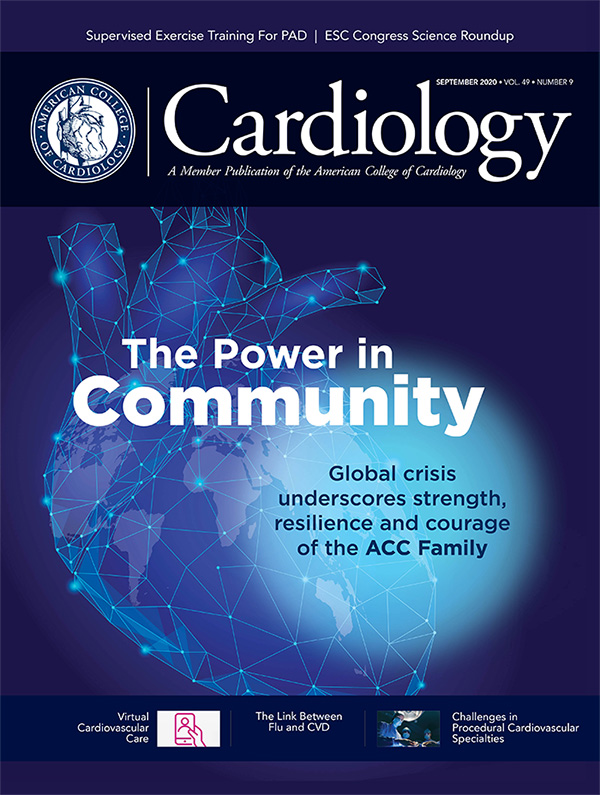Cover Story | The Power in Community: Global crisis underscores strength, resilience and courage of the ACC Family

For cardiovascular professionals, rapid change is nothing new – it's that sort of dynamism that draws aspiring physicians, advanced practice providers, nurses and others to the field in the first place!
However, no amount of new research, advances in treatment methods or policy changes could have prepared us for 2020.
A global health crisis unlike anything we've experienced in our lifetimes, as well as long overdue, emotionally charged and urgent conversations around racial inequities – including when it comes to access to care – have upended the traditional practice and business of medicine and posed challenges that can often seem insurmountable.
But while there may be no quick and easy solutions, the ACC firmly believes there is a path forward – and it starts with all cardiovascular professionals bringing their experiences, perspectives and skills to the table and forging a global community founded on collaboration, diversity, innovation and mutual support.
In the following pages, explore how ACC members around the world are addressing some of the most pressing issues confronting cardiology, from matters of work-life balance and diversity and inclusion to advocacy and innovation.
We hope you'll find strategies you might be able to adopt in your own practice, as well as consider the role you can play in building a better College – and profession.
Clinician Well-Being: What it Means; How to Balance
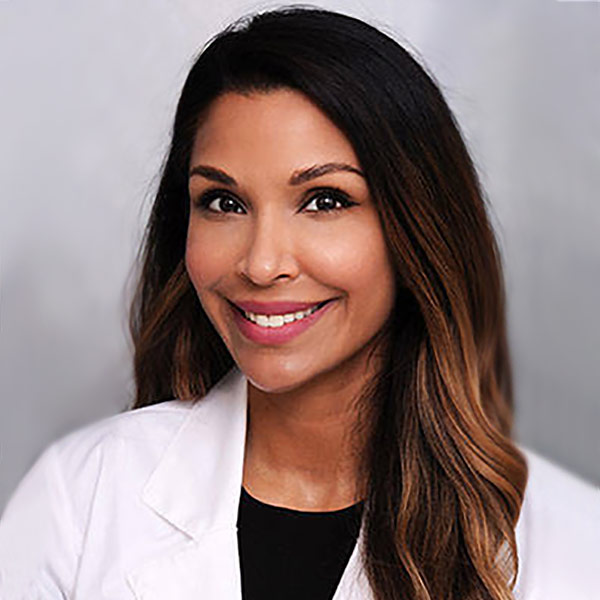 Sanah Christopher, MBBS
Sanah Christopher, MBBS
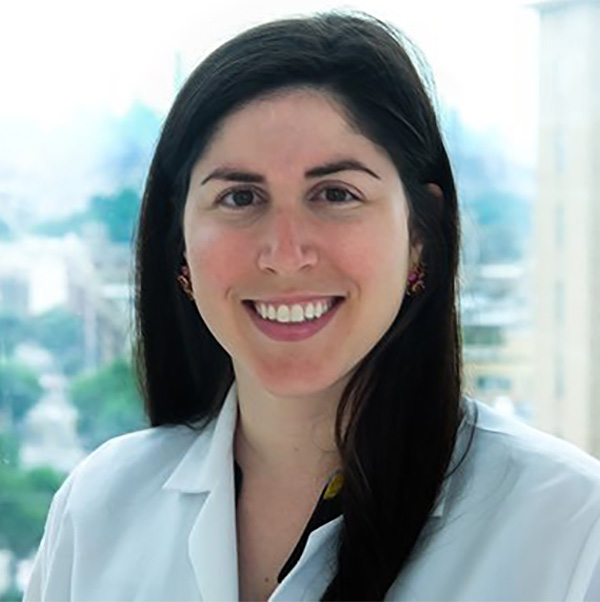 Ersilia DeFilippis, MD
Ersilia DeFilippis, MD
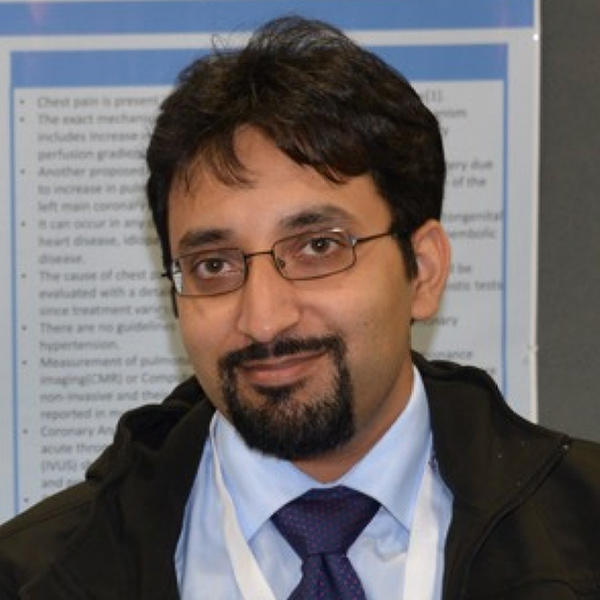 Zain Asad, MD
Zain Asad, MD
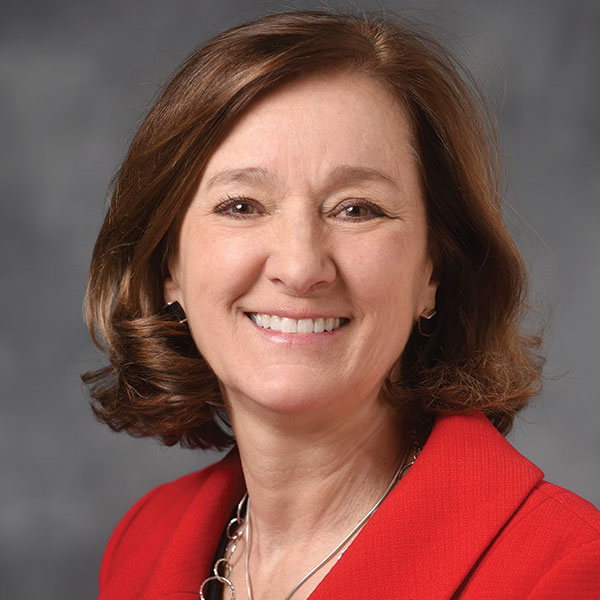 Janet Wyman, DNP, RNCS, AACC
Janet Wyman, DNP, RNCS, AACC
Sanah Christopher, MBBS (Hawaii): For me, well-being is balance and harmony in various aspects of living that brings joy, contentment and future growth. Identifying and focusing on the aspects of work/life that are gratifying is an essential step in pursuing wellness.
Ersilia DeFilippis, MD (New York): Even when we were redeployed throughout various intensive care units in March and April, my priorities were making sure I was staying physically healthy and getting my sleep every night.
Although my day-to-day routine has changed since then, I always ensure that when I come home from the hospital, I put away at least one hour for "me" time to decompress and recharge for the next day.
So much of my personal sense of wellness comes from my relationships with my parents, my fiancée and my friends. Those connections whether by phone, Zoom conferences or in person (with social distancing) bring me strength emotionally and psychologically.
Additionally, I enjoy reading fiction, jigsaw puzzles and playing tennis which allow me to relax and transiently "escape" from my work life.
Zain Asad, MD (Oklahoma): "Imbalance" is the sense of not having enough time to finish all your required tasks.
I struggled to maintain a balance in the past. Now I'm trying to formally learn time management and tools to improve work-life balance.
The use of the Eisenhower decision matrix has been extremely helpful in triaging tasks and it has allowed me to manage my time more effectively.
In addition to clinical work, I try to allot at least 20% of my work time to activities like clinical research and scholarly tasks that I find very satisfying and meaningful.
Just like scheduling all my work-related tasks, this year I've tried to schedule time for "wellness" and activities that "spark joy."
I started bicycling and found it enjoyable and rewarding as it helps me clear my mind and it is good exercise too.
Janet Wyman, DNP, RNCS, AACC (Michigan): Finding time for balance is always a challenge but this year is atypical. Our work worlds have required reworking nearly every aspect of interacting with patients and co-workers, making it easy to be consumed at work just to get the job done.
I find keeping balance requires a hard stop at some point in the day, knowing there is always tomorrow.
This requires prioritizing and re-prioritizing, focusing on what is essential. Then letting go when I walk out.
Wyman's three tips for achieving wellness:
- Regular exercise and activity
- Rethinking socializing (i.e., "People bubbles, #maskup, virtual meetings)
- Limiting social media and "checking the news"
Hospital Well-Being Strategies That Work
Ersilia DeFilippis, MD: Overall, I think our hospital system has been very supportive of its employees over the last few months by providing additional child care, discounted parking and additional hospital-sponsored transportation options, along with complimentary meals. They have also repeatedly verbally expressed their appreciation of our hard work and concern for our health safety, both of which are very important to me. However, perhaps my favorite initiative was pet therapy!
Zain Asad, MD: Our hospital has implemented regular burnout surveys, which help us keep track of our burnout levels. This allows us to identify early burnout and consciously implement some wellness strategies.
Janet Wyman, DNP, RNCS, AACC: The Henry Ford Health System has been very proactive in offering emotional support and employee services all throughout the COVID-19 challenge. There have been group and individual meetings for those who need emotional support, stress and burnout resiliency workshops, strategies for people with families, and for those who are able there has been extensive reworking of work environments to allow work from home.
Sanah Christopher, MBBS: My hospital system has been proactive in implementing support for the increased demands during this time with well-being focused forums and online sessions, increased child-care support and housing options for health care workers having to quarantine, to name a few.
ACC and Clinician
Well-Being
ACC, under the guidance of the Clinician Well-being Task Force, has been focused on providing members with resources and tools to help take care of their own mental and physical well-being both during the COVID-19 pandemic and longer term.
Task Force Chair Laxmi Mehta, MD, FACC, notes some of the highlights include a June Cardiology perspective piece on systemic issues of clinician well-being, as well as a focused Practice Made Perfect podcast providing self-resiliency tips during COVID-19 and a Summer COVID-19 Education Series session addressing the stigma of mental health, and how/when to seek help.
Visit ACC's Clinician Well-Being Portal (ACC.org/ClinicianWellbeing) and access quick links to access these and other resources, including a dedicated Member Hub discussion group and more.
COVID-19: Turning Challenges Into Opportunities
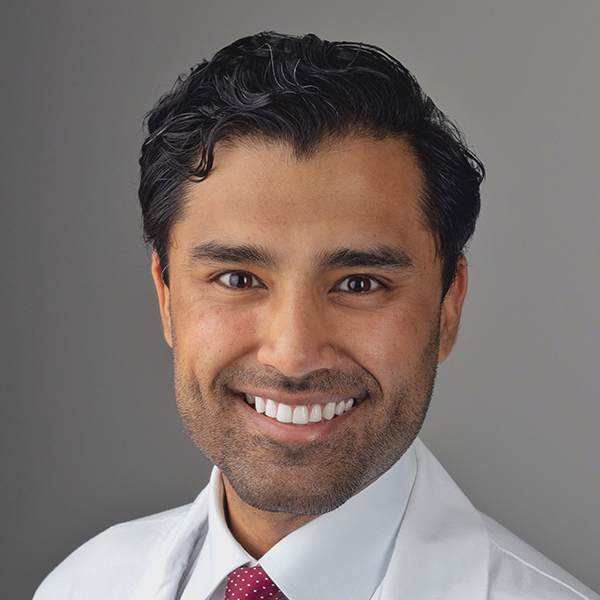 Prashant Rao, MBBS
Prashant Rao, MBBS
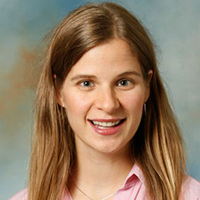 Laura J. Ross, PA-C, AACC
Laura J. Ross, PA-C, AACC
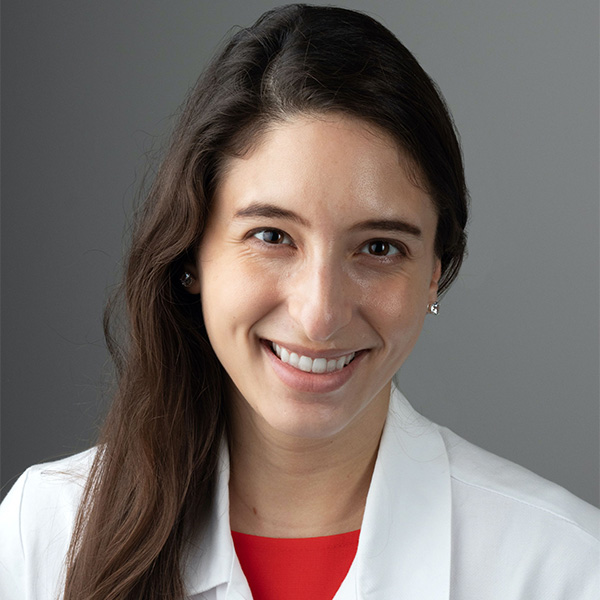 Lila Martin, MD
Lila Martin, MD
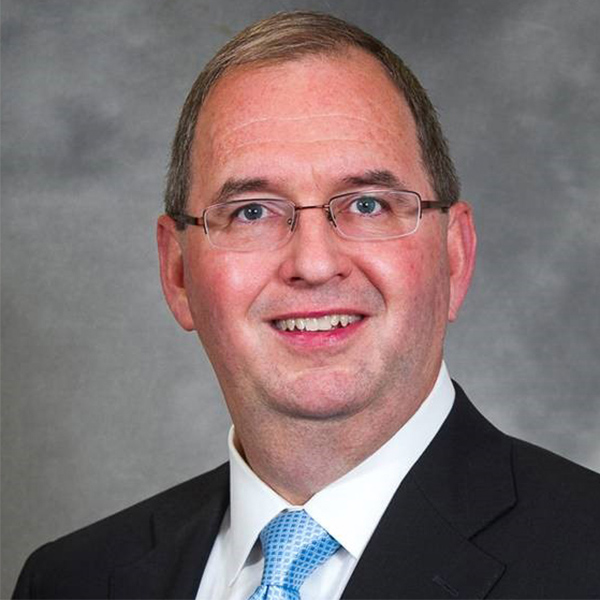 Jesse E. Adams III, MD, FACC
Jesse E. Adams III, MD, FACC
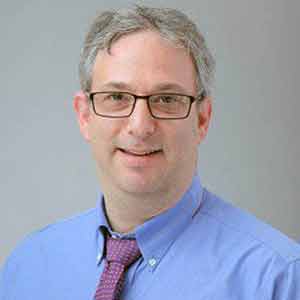 Mathew S. Maurer, MD, FACC
Mathew S. Maurer, MD, FACC
Prashant Rao, MBBS (Massachusetts): The heightened sense of spirit, belonging and community that has taken place during COVID-19 has been a rare highlight during this period. Local entrepreneurs have been raising money to provide masks, meals and education to those most vulnerable.
These acts of kindness take on new meaning in an otherwise increasingly isolated society. … It was also encouraging to see staff at all levels working alongside each other, with the chief of cardiology leading from the front.
Laura J. Ross, PA-C, AACC (Minnesota): I am optimistic about medicine's ability to evolve. I'm so proud to be part of this health care community that rose to the challenges of COVID and found ways to improve care.
Quarantine led to new telemedicine visits in my cardiology practice, and we utilized technology to optimize care such as helping patients download free smart phone apps to monitor heart rates, evaluating pitting edema via video visits, and medication inconsistencies were easier to discover when patients were at home looking at their medicine cabinets.
The ACC and COVID-19
"At the outset of the COVID pandemic, the ACC recognized the need for rapid and credible information for its membership, especially as we realized that cardiac patients were particularly vulnerable to the virus," says ACC Science and Quality Committee (SQC) Chair Thomas M. Maddox, MD, MSc, FACC.
He notes that in a matter of days, SQC leaders and staff created a COVID-19 Hub and populated it with clinical information, front-line experiences, and practice guidelines.
With more than 2 million views of the COVID-19 Hub to date, it continues to be an important source of information about how to reopen safely, emerging insights from treatment research, and the long-term effects of the virus on cardiac patients.
In addition, the Hub includes quick links to the latest policy updates, JACC Journals research, on-demand education and more!
This COVID "life pause" has also been a great time to discuss our plant-based clinic with patients as it does not require in-person visits, and we developed a plant-focused menu plan and grocery list for a food delivery option.
Lila Martin, MD (Massachusetts): COVID has made health care workers come together across institutions, states, and even across nations to share information about what we were seeing and learning in real time. I learned so much from conversations and social media threads about rapidly changing best practices than I ever could have from a textbook.
While COVID has forced us be physically socially distant, it has brought me closer to colleagues I may have never worked with prior to the onset of the pandemic.
COVID has [also] unearthed many inherent, foundational problems in our society that have affected our patients in ways I could have never imagined. While we do not have solutions to many of these questions, acknowledging and addressing them in everyday conversation with our patients has become just as important as uptitrating goal-directed medical therapy.
Jesse E. Adams III, MD, FACC (Kentucky): Like all of us, COVID has affected our delivery of cardiovascular care in a myriad of ways. We've had to be nimble and resilient, adapting rapidly to diverse novel demands to provide cardiovascular care in a newly challenging environment while also focusing on protecting both our cardiovascular workforce as well as our patients.
Mathew S. Maurer, MD, FACC (New York): Being more responsive to patients concerns whether they be cardiac or COVID-related and realizing that embracing the complexity of care during this time is critical.
ACC Advocacy: Advancing Health Policy Solutions; Amplifying Voices
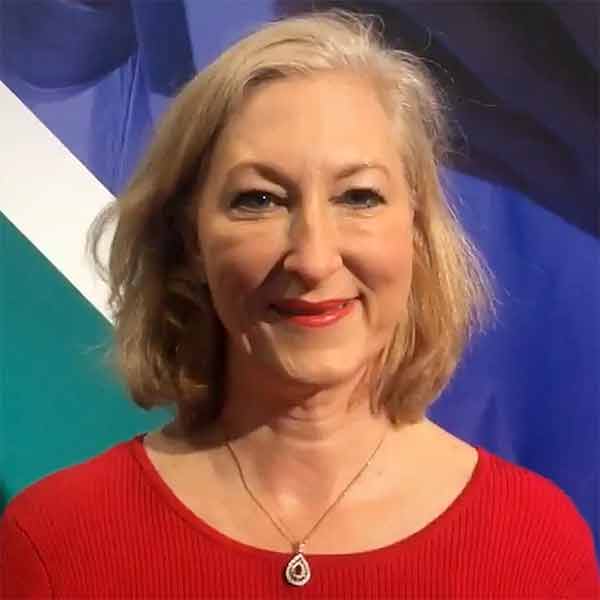 Linda Lee Hart, DNP, RN, ACNP-BC, AACC
Linda Lee Hart, DNP, RN, ACNP-BC, AACC
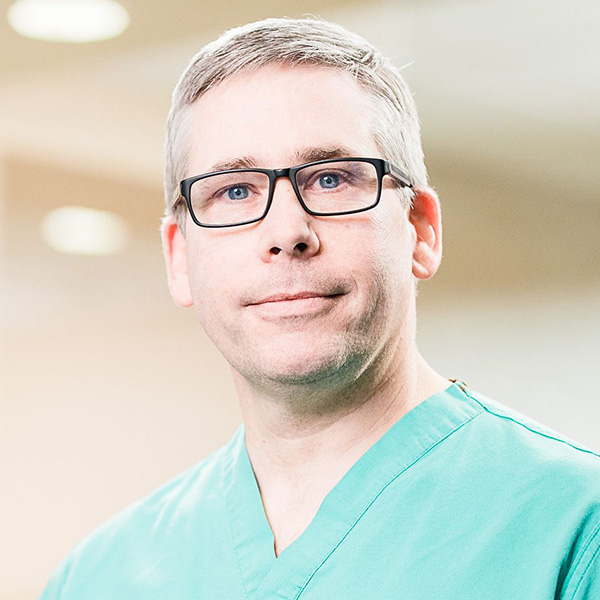 Samuel O. Jones IV, MD, MPH, FACC
Samuel O. Jones IV, MD, MPH, FACC
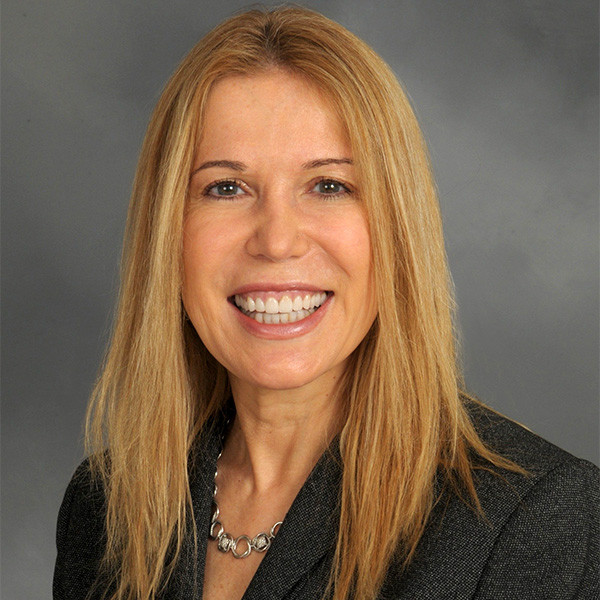 Smadar Kort, MD, FACC
Smadar Kort, MD, FACC
Linda Lee Hart, DNP, RN, ACNP-BC, AACC (Minnesota): The challenges of 2020, in particular those related to COVID-19, have amplified the need for and the power of advocacy.
The pandemic has highlighted many of the challenges in our health care system, including access and resource availability and utilization.
The pandemic has offered the ACC the opportunity to lead efforts in advancing and promoting access to care by advocating for legislation related to telehealth including parity of reimbursement, supporting all members of the team to practice to the top of their license, promoting access to cardiac rehab, EMR interoperability, and liability reform.
Now more than ever, engagement with advocacy is critical, so the good work started during the pandemic can continue to benefit our patients and our profession.
Samuel O. Jones IV, MD, MPH, FACC (Tennessee): As the COVID-19 pandemic stopped the world in its tracks, health care was not immune and faced immense challenges.
Advocacy has been critical to explain to lawmakers, hospital administration and payers how to make necessary changes to care for patients, to protect health care workers, and to ensure the health care system stays financially solvent.
We must continue to address the social disparities in care, which have been highlighted over the last few months and are widening during this crisis.
We need to ensure that telemedicine, now that it has been shown to be an effective modality, remains a viable option for all patients in all locations.
Finally, the ongoing financial instability that health care systems and practices face is not going away so we must continue to advocate for a stable health care workforce so that patients can get the quality care they deserve.
Smadar Kort, MD, FACC (New York): The challenges our medical community experienced and are still experiencing are unprecedented.
Participating in some ACC national and international webinars and communicating with other cardiologists around the world, it was clear that many of us struggled with the same challenges regardless of where we practice.
It was also clear that our voices were not always heard and some of the information provided to the public has not always reflected the reality we live in.
The need to tell our stories, advocate on our own behalf and on behalf of our patients [is] obvious.
ACC and Advocacy
Never has advocacy been more important to the cardiovascular community than during the COVID-19 epidemic, says ACC HeartPAC Chair Sandra J. Lewis, MD, FACC. She highlights the following outcomes as being among the biggest COVID-19 advocacy wins:
- CV Team Members can order home health services.
- Expanded telehealth waivers, flexibility and parity.
- Allocation of billions for PPE and other emergency medical supplies, including testing.
- Dedicated Provider Relief Funding (PRF) and Public Health and Social Services Emergency Funding (PHSSEF).
- Liability protection for volunteers has begun, with work continuing for further expansion.
- Research funding allocated to the U.S. Centers for Disease Control and Prevention, National Institutes of Health, and Food and Drug Administration.
- Reductions in administrative burdens, including delays in Federal Quality Payment Program and Appropriate Use Criteria Program requirements during the public health emergency.
- A record-breaking 10,000+ grassroots messages sent to policymakers from ACC grassroots advocates.
Looking ahead, Lewis says the voice of ACC Advocacy will continue. "Our voice for cardiology and our patients will continue to advocate for research funding, graduate medical education, the role of CV Team members, disparities in access to care, and overall cardiovascular health," she says.
"We will grow relationships with key legislators as we remain the voice of expertise in heart health."
Learn more about ACC Advocacy efforts, including policy positions, grassroots opportunities, the ACC HeartPAC and more at ACC.org/Advocacy.
For regular updates on ACC Advocacy activities, make sure to read the College's weekly Advocate e-newsletter and follow @Cardiology on Twitter. Also plan to attend the ACC's 2020 Virtual Legislative Conference from Oct. 4 to 6.
Fostering Diversity, Inclusion and Equity Across the CV Profession
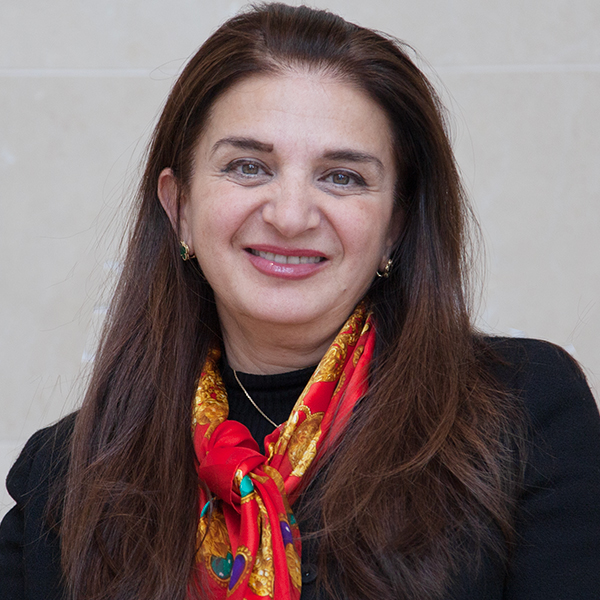 Roxana Mehran, MD, FACC
Roxana Mehran, MD, FACC
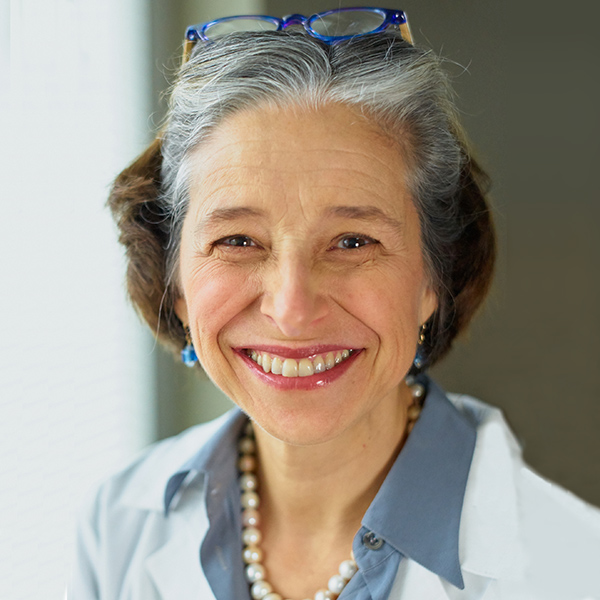 Pamela S. Douglas MD, MACC
Pamela S. Douglas MD, MACC
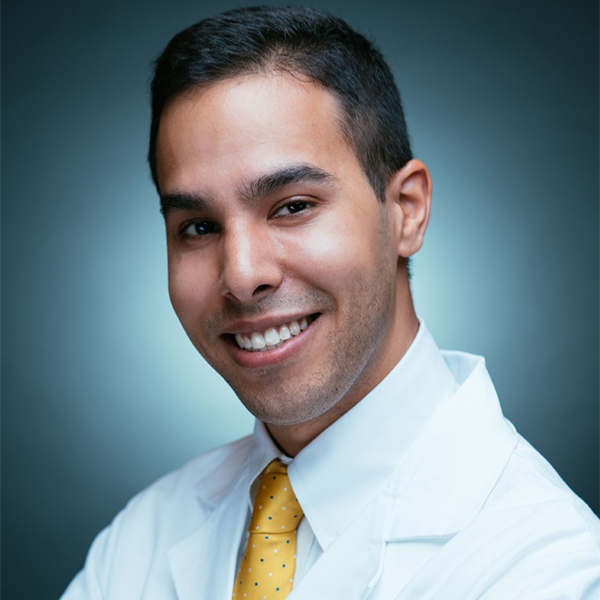 Aaron Vigdor, MD
Aaron Vigdor, MD
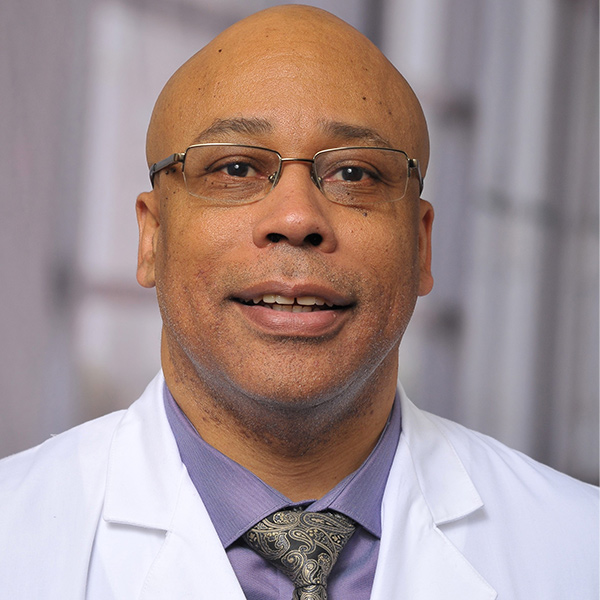 Quinn Capers IV, MD, FACC
Quinn Capers IV, MD, FACC
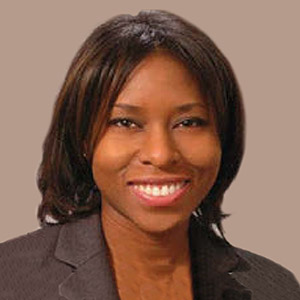 Gmerice Hammond, MD
Gmerice Hammond, MD
Roxana Mehran, MD, FACC (New York): The cardiology community needs to come together. The tendency we've seen in recent years is for organizations to form committees, task forces or special events which focus on this issue.
These efforts are typically comprised solely of the women and/or underrepresented minorities they are intended to focus on. However, if we restrict this work to just the affected groups, we don't actually address the full issue, which is systemic. So, it's important to also address diversity and inclusion from an institutional standpoint, which means participation and commitment of organizational leaders to meeting certain goals and standards.
This includes not only hospital CEOs, department chairs and fellowship program directors, but also leaders of professional organizations, academic journals, regulatory agencies – everyone – taking a hard look at their scope of influence and decisive action to assure diversity and inclusion across the board.
Relegating this job to those who are not in a position to make lasting change is ineffective.
Our field needs to internalize and advocate for this change collectively because if we do not, we remain stagnant as a profession, permit disparities to persist, and miss important opportunities for advancement of care of our increasingly diverse patient population.
Pamela S. Douglas MD, MACC (North Carolina): Although diversity is sometimes conceptualized as representativeness for its own sake, it is rather the recognition that variety in talent, character and experience are necessary to advance the art and science of cardiovascular medicine and achieve the mission of ACC.
Diversity alone achieves little without inclusion and equity.
Areas in which individuals, organizations and professional societies can strive to achieve diversity, equity and inclusion include:
- Diversifying cardiovascular students and trainees, the workforce, and organizational leadership.
- Ensuring respectful professional behavior, and equity of opportunity and support.
- Ensuring freedom from bias, discrimination, bullying, and harassment in all forms.
- Elimination of personal, institutional and structural racism and sexism.
Addressing Health Care Disparities: Four Steps Forward
Cardiovascular medicine can take several steps to reduce health care disparities, several of which are already being done but should be replicated and magnified, says Capers, who will be giving the keynote at ACC's Quality Summit next month. He offers these four steps for moving the profession forward:
- Treat the lack of diversity in the cardiology workforce as an emergency and work urgently to correct it. That means actively recruiting in the deep pipeline, dismantling biases in the system that have kept our specialty non-diverse for so long.
- Develop and follow clinical algorithms closely. For example, clinical protocols have been shown to reduce racial disparities in heart attack care.
- Lessen individual implicit biases with focused training. All practitioners, leaders and decision makers (cardiology chiefs, fellowship program directors) should have bias and racism mitigation training at repeated intervals.
- Create teams that focus solely on recruitment of diverse patient populations in clinical trials of new devices and drugs.
ACC's and Diversity and Inclusion
Diversity is not just an issue for cardiologists, it is an issue for quality patient care.
The ACC is committed to improving diversity and inclusion in the practice of cardiology, and at the College by harnessing the power of all its members to advance patient care, spur innovation and improve health equity among individual patients and populations.
Learn more about what we're doing and join the conversation at ACC.org/Diversity.
Aaron Vigdor, MD (Virginia): Cardiology benefits from diversity with regard to the perspective and experience of its practitioners as well as inclusivity with regard to the ideas we bring to advance care for our patients.
Our patients, who represent all demographics, are better served by a profession that is best able to connect with their experience and form a durable therapeutic alliance, though there is still much work to be done to achieve this ideal.
Quinn Capers IV, MD, FACC (Ohio): The biggest challenges facing groups traditionally underrepresented in cardiology include lack of effective mentoring; lack of role models to inspire them; structural racism in the educational system (social determinants of success) that lead to underrepresented groups having (as a group) lower standardized test scores while programs have tended to over-rely on test scores as a method to "screen out" applicants; and a relative lack of appreciation of academic medicine leaders that diversity and inclusion actually enhances an institution's ability to achieve excellence.
Roxana Mehran, MD, FACC: I focus a lot of my work on women, who represent just 13% of practicing cardiologists in the U.S. For women, and this rings true for many other underrepresented groups, the professional mountain seems especially steep in cardiology.
It is past time to do something about this, not just for women, but for all underrepresented groups across the field.
Gmerice Hammond, MD (Missouri): Academic medicine overall has been thrust forward by COVID in ways that have been long overdue. A new urgency for change was ignited amidst the gross racial inequities exposed by COVID and the tragedy of George Floyd's murder.
These two events born of the same underlying pathology, completely refocused academic research on racism in a critical way. These simultaneous tragedies brought into full focus the deadly consequences of historical, systemic and structural racism. This is central to my work and the work of others. This is an urgency that academia should have always had, and one that we must not lose.
As a black woman, wife and mother, these events took a personal toll on me. I had to process the real possibility that my children could be the victims of violence because of the color of their skin. It's challenging to pursue research and clinical obligations in that climate; I had to take a step back and process some of these things in order to be productive and do my work.
Global Collaboration Key to Transforming CV Care
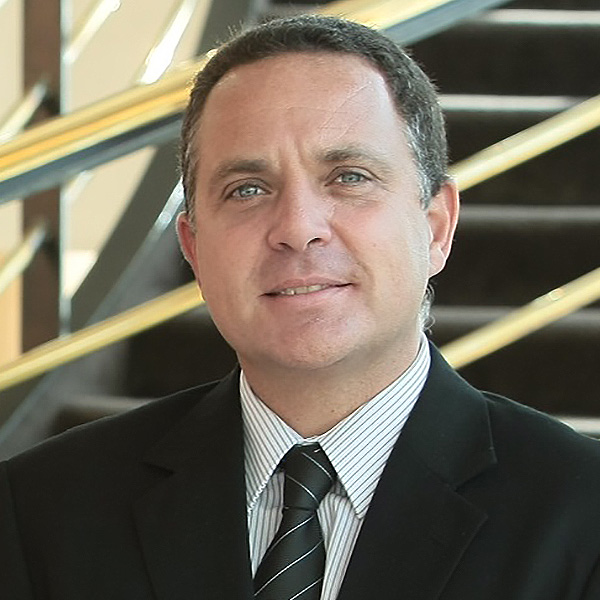 Javier Sala Mercado, MD, PhD
Javier Sala Mercado, MD, PhD
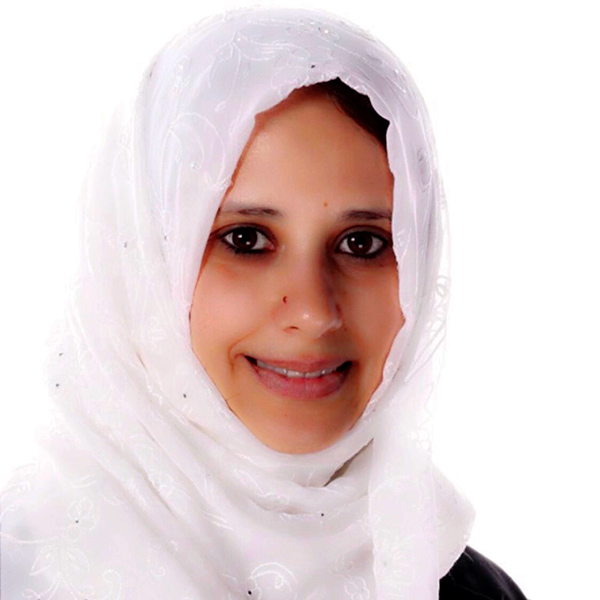 Mirvat Alasnag, MB, BCh
Mirvat Alasnag, MB, BCh
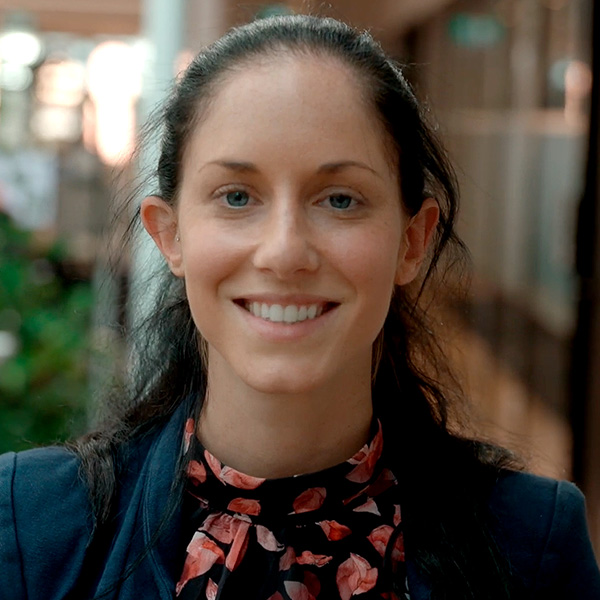 Louise Segan, MBBS
Louise Segan, MBBS
Javier Sala Mercado, MD, PhD (Argentina): The pandemic has shown me that we are part of an entire international cardiovascular community. It has shown me that you can learn a lot and grow by collaborating with colleagues of many different backgrounds; that the power of collaboration is amazing and the impact it can have goes way beyond what you can imagine; and that relationships, teamwork and trust within a cardiovascular community are fundamental for our patients.
A worldwide community with a common purpose and goals are the foundation for fast progress, and the world is our community when we look after each other by sharing our knowledge and experience. The way the cardiovascular community has come together worldwide this year has been inspiring and encouraging for a better future.
Mirvat Alasnag, MB, BCh (Saudia Arabia): The COVID-19 pandemic [has] posed a new challenge to all cardiologists around the globe in 2020. [However,] collaborative efforts have permitted us to learn and share experiences. The health care community [in 2020] is ready to embrace changes in the face of difficult times.
More importantly, the community remains cohesive and eager to produce research and protocols. On an individual level, it was heartwarming to witness volunteers rushing to areas needing relief during the pandemic, purchasing PPE for their colleagues and working tirelessly to provide care to patients.
Louise Segan, MBBS (Australia): The COVID-19 pandemic has really tested the global workforce and I am really proud to see the resilience of health care workers in responding to an unprecedented crisis.
Moreover, despite the evolving conditions and policies, the health care community has demonstrated adaptability, innovation and collaboration in providing a unified response to the growing demand in our services while maintaining quality care for patients not affected by COVID-19.
Internationally, the cardiovascular community has continued to facilitate information exchange through virtual conferences (i.e., ACC.20/WCC, ESC Congress 2020 and others); networking through online webinars and social media platforms; and rapid development of COVID recommendations in the provision of cardiovascular care during the pandemic.
Cardiovascular clinicians, like other health care workers, have reinforced the importance of well-being and maintaining cardiovascular care despite uncertain times, while being role models for PPE, social distancing and other measures to reduce transmission. The adoption of telemedicine has been a great improvement in addressing health care inequities and transform the clinician-patient experience.
ACC and Global Collaboration
Achieving the College's Vision of a world where innovation and knowledge optimize cardiovascular care and outcomes requires global collaboration. The ACC is out in front and on the ground in countries around the world, working with its 42 International Chapters, partner cardiovascular societies, industry and government stakeholders and more.
For more on the ACC's global activities and resources, including the newly launched NCD Academy and fast-growing Global Heart Attack Initiative, visit ACC.org/GlobalHub.
Also, don't forget to join the ACC in celebrating World Heart Day on Tuesday, Sept. 29.
Moving Forward With Science, Education and Innovation
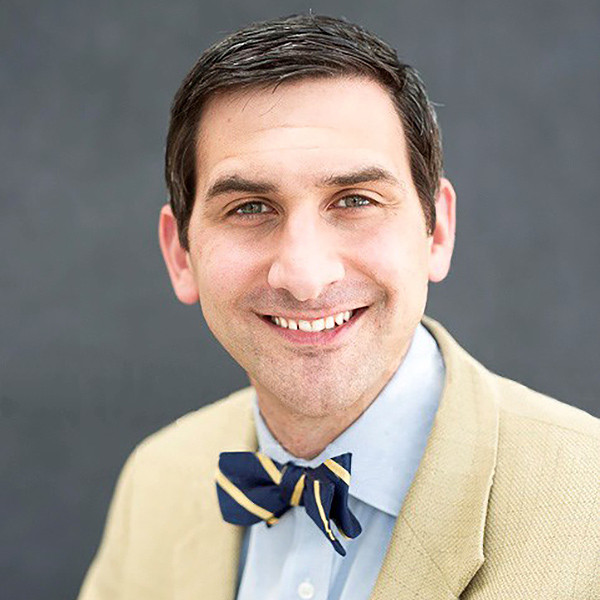 Craig J. Beavers, PharmD, FACC
Craig J. Beavers, PharmD, FACC
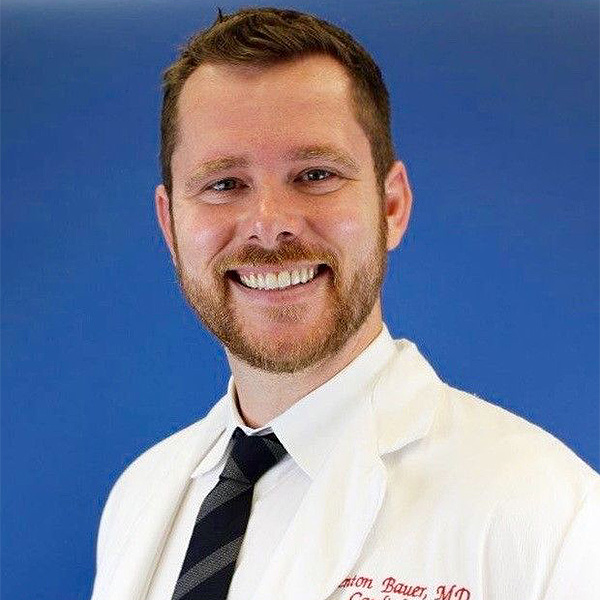 Brenton Bauer, MD, FACC
Brenton Bauer, MD, FACC
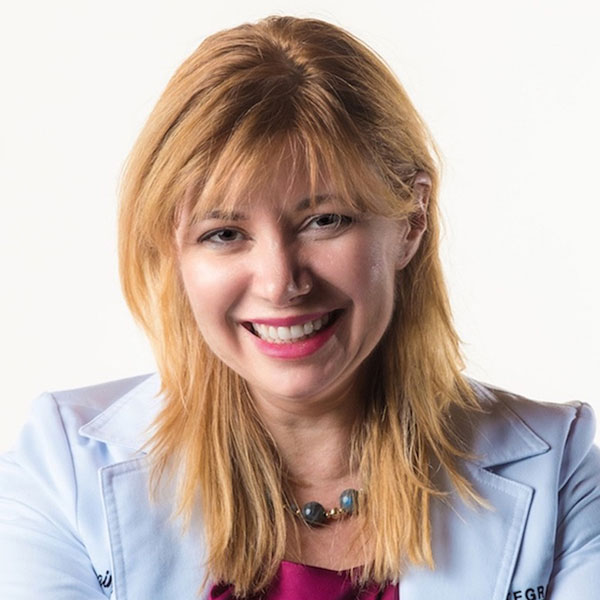 Regina Druz, MD, FACC
Regina Druz, MD, FACC
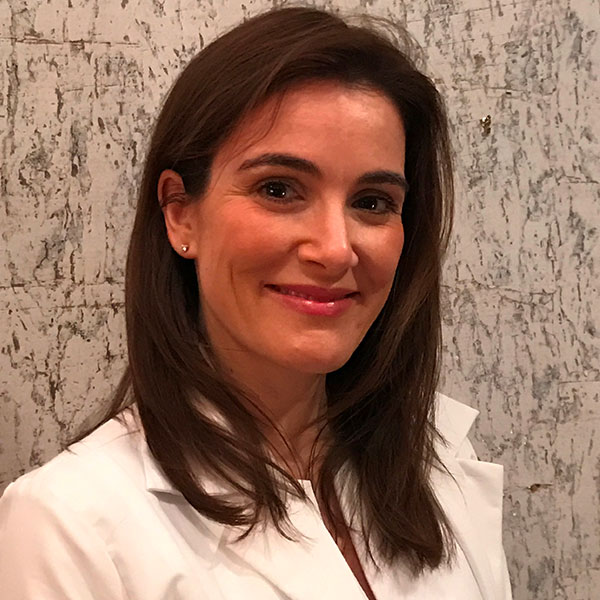 Nicole Orr, MD, FACC
Nicole Orr, MD, FACC
Craig J. Beavers, PharmD, FACC (Kentucky): There has been so much literature/information coming out this year in relation to cardiovascular disease management in general, but also related to COVID-19 and the overlap of cardiovascular disease and COVID-19.
It can be mind boggling. I have tried to sift through data via my traditional routes, including journal e-mail alerts and social media (especially Twitter, @beaverspharmd). ACC's Summer COVID-19 Education Series and COVID-19 Hub have been great additions. In addition, I've really tried to embrace as much virtual/digital education as possible.
Brenton Bauer, MD, FACC (California): Despite the pressures and challenges that 2020 has placed on the medical profession, in my opinion, this has not stopped the scientific community from pushing forward for the betterment of our patients.
While we all miss the social networking aspect of traditional in-person conferences, the transition to a virtual platform has allowed the opportunity for many physicians including myself to attend more events this year than is usually possible (e.g., less expensive registration/free, no travel, etc.).
On a more day-to-day basis, it has been very useful for me to take advantage of a daily email subscription (e.g., ACC Journal Scan, ACC CV News Digest, etc.) that curates the best and most relevant content along with summaries from experts in the field.
Regina Druz, MD, FACC (New York): One of the major innovations as a result of COVID-19, of course, was a massive and rapid expansion in virtual care. However, it is only part of a story. We are seeing a transformation in practice delivery for cardiac services, through the digital health tools, and creation of dynamic and adaptive ecosystem that integrates technology to serve patients and clinicians.
ACC Keeps You Up-to-Date
Get the latest science and trusted education from ACC. From the ACC.org education updated daily to JACC Journals at OnlineJACC.org, and from virtual education events including the Summer COVID-19 Education Series to the new Collaborative Maintenance Pathway, the ACC is providing the education you need, wherever you are.
- ACC's JACC Journals feature the latest in cardiovascular research and offer opportunities for CME, CNE and European credit. Also don't miss regular JACC Journals podcasts, check out JACC International Editions and don't miss the new JACC: Asia coming soon. It's all at OnlineJACC.org.
- ACC continues to raise the bar when it comes to virtual education. Earn continuing education credits with online modules and activities, and keep learning with our live courses gone virtual, including the recent Summer COVID-19 Education Series. Explore at ACC.org/Education.
- The Collaborative Maintenance Pathway (CMP) offers cardiologists more choice, relevance and convenience in meeting the assessment requirement of the Maintenance of Certification (MOC) program. Start learning more at ACC.org/CMP.
- ACC Member Sections provide focused communities where members can connect and collaborate around shared interests, specialties or career stages – all while building leadership experience and moving the College forward. Visit ACC.org/JoinSections.
Thus, for me the seismic shift is not that we now have virtual care available more than before, but in the evolution of practice as a digital front door entity. The virtual care expansion was our beach head. Within the Health Care Innovation Section, I recently championed a crowdsourcing event called the Innovation Forum.
It allowed us to bring together technology and physician stakeholders to exchange information, reflect on lessons learned and map out how the digital health will evolve.
Nicole Orr, MD, FACC (Massachusetts): Interestingly, the pandemic has opened potential research opportunities for my practice, Post-Acute Cardiology Care, an independent consultation practice serving older adults with heart disease in skilled nursing facilities.
Currently there is little infrastructure for conducting research in post-acute care, but given the scope and effects of the pandemic on older adults in nursing homes, there is a growing interest in including older adults within this health care sector into studies.
I'm in the process of developing a research infrastructure to enable data collection and analysis between a skilled nursing facility corporation, private practice, and a university.
We look forward to studying not only the impact of COVID-19 on recovery among older adults with heart disease, but building a nontraditional research model to hopefully facilitate future research in patients with heart disease residing in skilled nursing facilities in my facilities, and perhaps others around the country.
Brenton Bauer, MD, FACC: As an Early Career cardiologist, it can be challenging to balance both professional development and personal demands while keeping a "pulse" on the ever-changing landscape of cardiovascular science and medicine. Maximizing efficiency is key in my practice to ensure staying current while avoiding burnout and feeling overwhelmed.
Clinical Topics: Cardiovascular Care Team, COVID-19 Hub, Sports and Exercise Cardiology
Keywords: ACC Publications, Cardiology Magazine, Anniversaries and Special Events, Bicycling, Cardiovascular Diseases, Capparis, Child Care, COVID-19, Fellowships and Scholarships, Goals, Heart Rate, Healthcare Disparities, Hospital Administration, Hospital Administration, Mental Health, Pandemics, Public Health, Mentors, Housing, Racism, Sexism, Time Management, Social Media, United States Food and Drug Administration, Work-Life Balance
< Back to Listings


